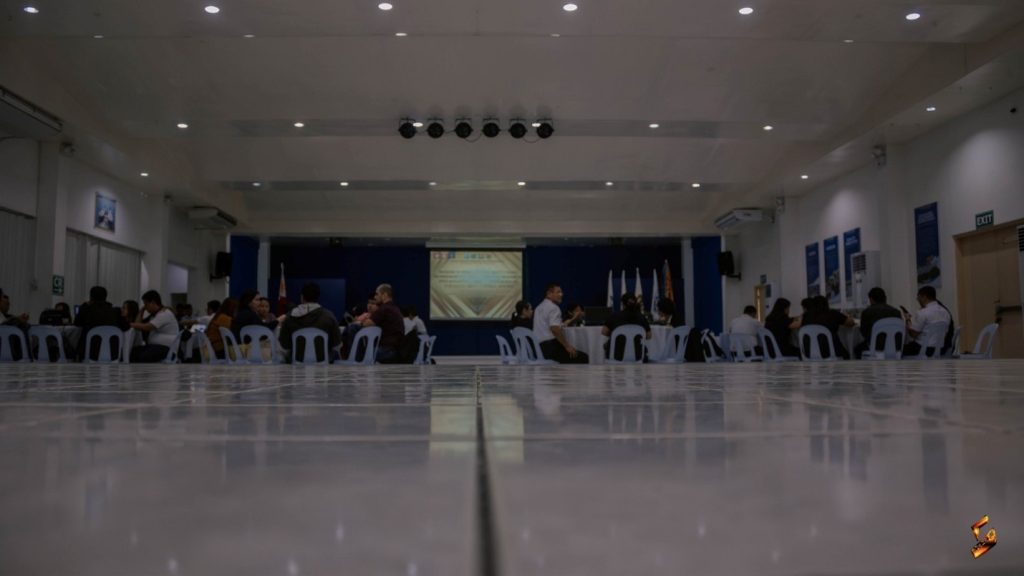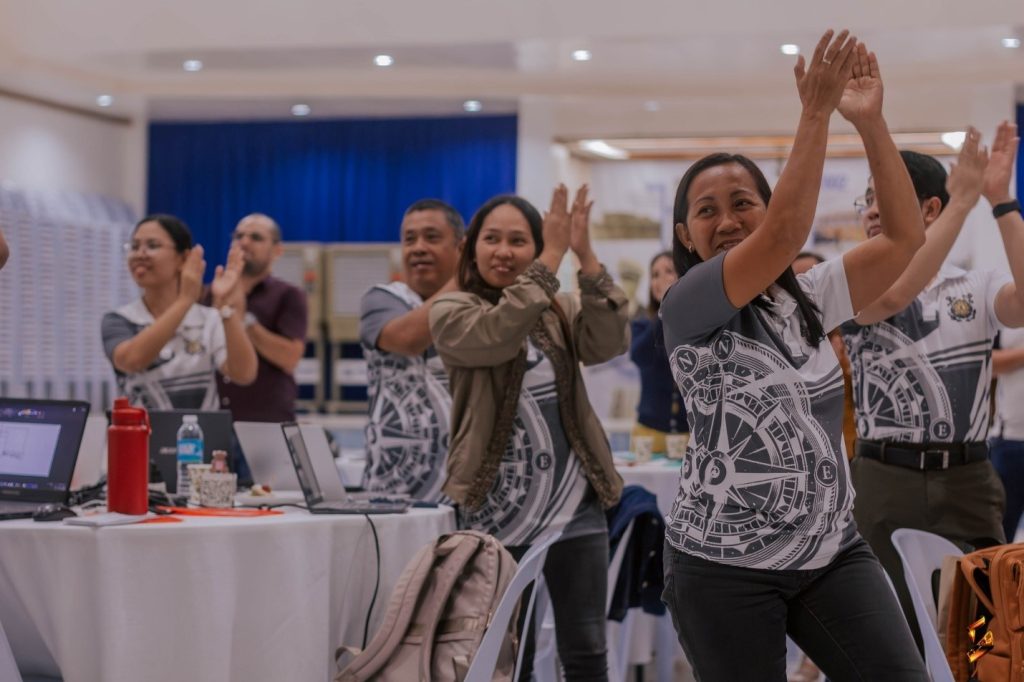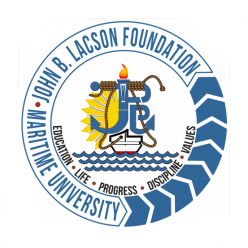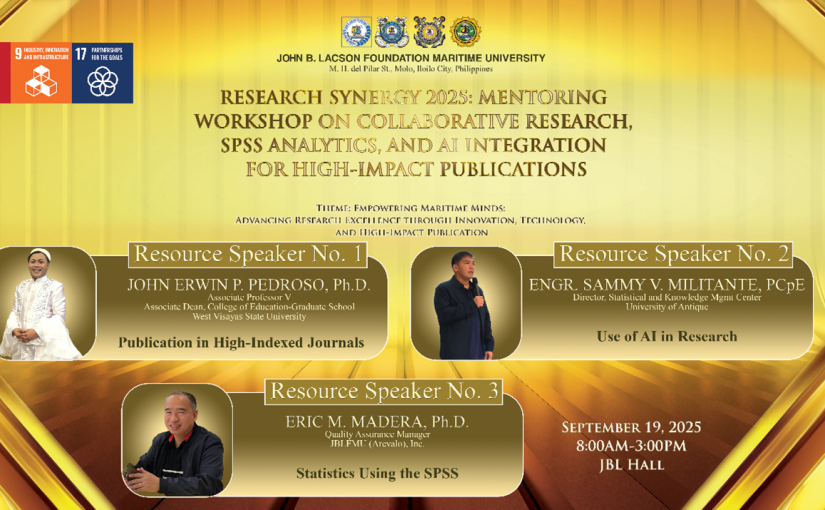ILOILO CITY, Philippines — September 19, 2025
Photos by: Maritime Lenses
The John B. Lacson Foundation Maritime University–Arevalo (JBLFMU–Arevalo) proudly hosted the “Research Synergy 2025: Mentoring Workshop on Collaborative Research, SPSS Analytics, and AI Integration for High-Impact Publications,” a one-day intensive faculty development program held at the JBL Hall.
Aligned with the Annual Operational Plan (AOP) of the JBLFMU system, this workshop was part of a system-wide initiative involving three units: JBLFMU–Arevalo under Dr. Roderick R. Germo (Research Coordinator), JBLCF–Bacolod under Dr. Emeliza Estimo, and JBLFMU–Molo under Dr. Rolando Alimen, with the strong leadership of Dr. Brian Gil S. Sarinas, OIC–Director of Research and Development and Community Extension Services.
The event gathered faculty members across disciplines, underscoring JBLFMU’s commitment to enhancing research capabilities and equipping educators with the skills needed to produce globally competitive, high-impact research publications.

Opening Program: Setting the Tone for Excellence
The workshop formally opened with the Invocation, national and regional hymns, and the JBLFMU hymn, followed by a presentation of safety protocols led by 2M Karl Danielle H. Sira, MMM, CCSSM.
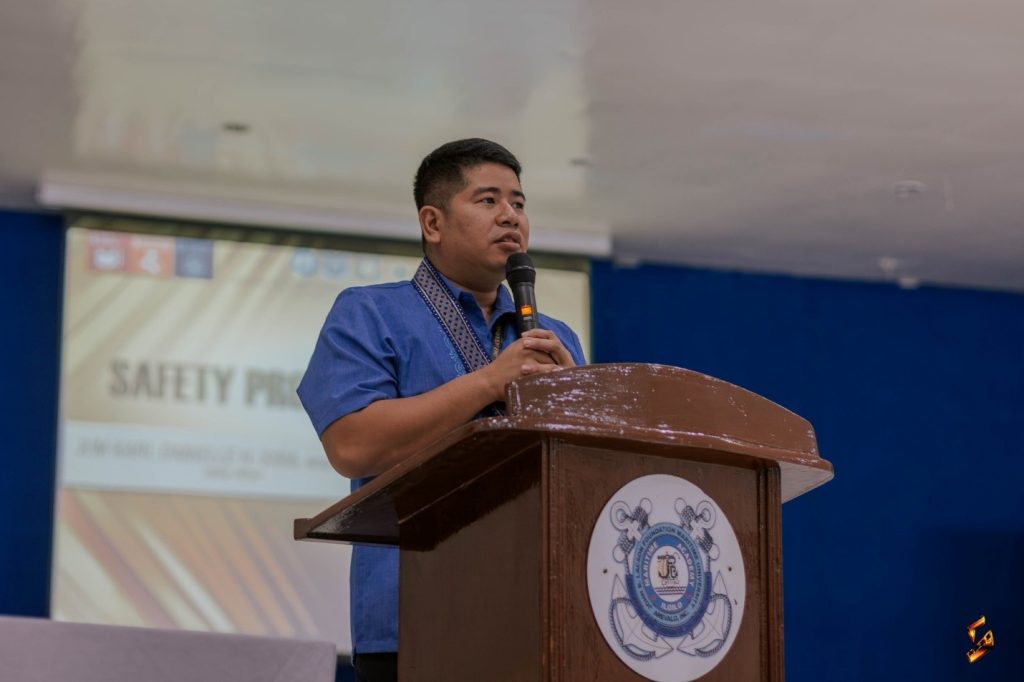
2M Karl Danielle H. Sira, MMM, CCSSM.
Originally slated for Mr. Robert O. Parcia, MSMM (JBLFMU-Arevalo Administrator), the Opening Remarks were delivered on his behalf by Dr. Brian Gil S. Sarinas, who emphasized the institution’s vision of integrating research, innovation, and technology into the fabric of maritime education. He highlighted that Research Synergy 2025 is not just a training workshop, but a platform for faculty empowerment and academic collaboration.
Dr. Sarinas also provided an overview of the event, laying the foundation for the day’s learning sessions and setting a forward-looking tone that resonated with the participants.
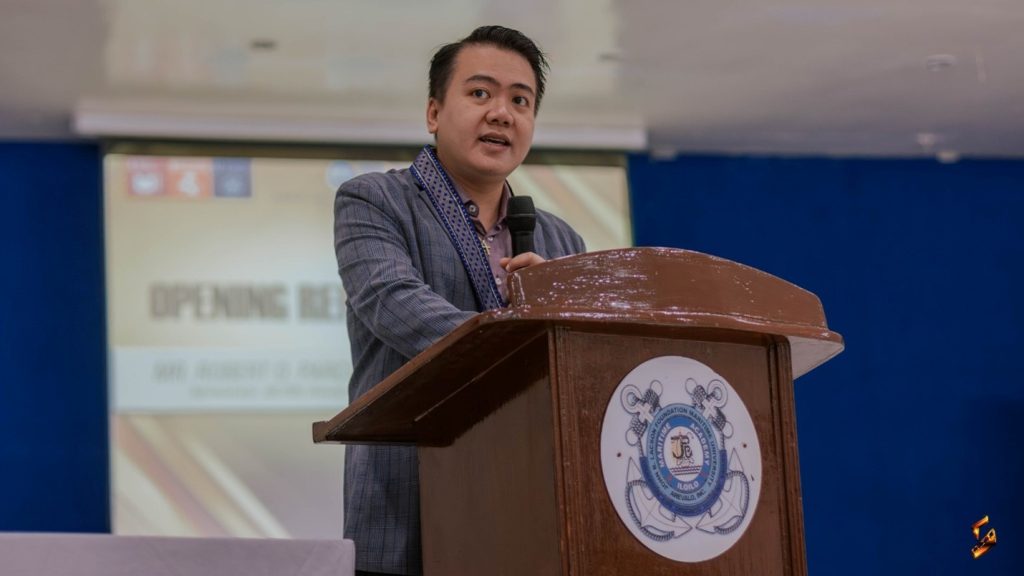
Session 1: Publishing in High-Indexed Journals
The first session, “Publication in High-Indexed Journals (e.g., Clarivate Analytics/Scopus)”, was facilitated by Dr. John Erwin P. Pedroso, Associate Dean of the Graduate School, West Visayas State University.
Dr. Pedroso’s lecture demystified the rigorous process of publishing in globally recognized journals. He emphasized the importance of research originality, strong methodology, and adherence to international standards, while also sharing practical strategies on selecting journals, addressing reviewers’ comments, and avoiding predatory publishers.
This session inspired faculty participants to aim higher, encouraging them to transform institutional research into publications of international significance.
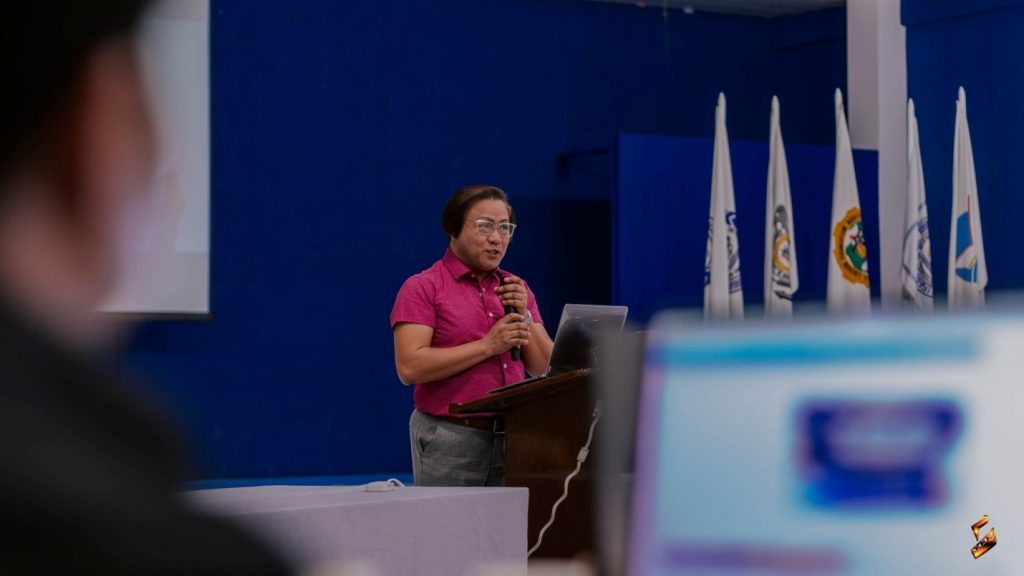
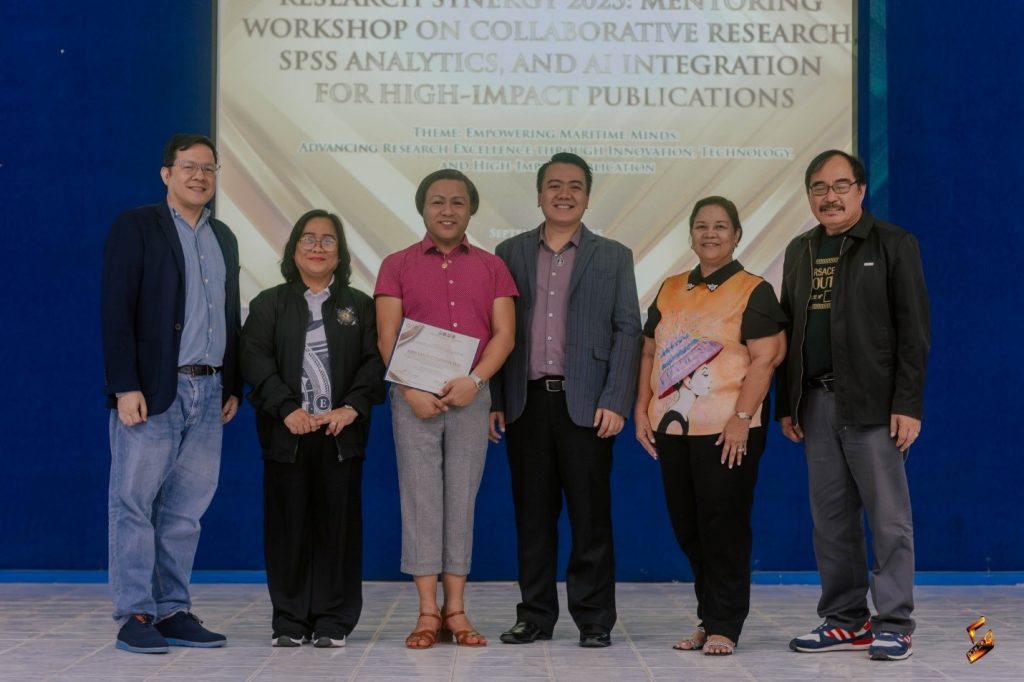
Session 2: Harnessing Artificial Intelligence in Research
The second session, “Use of AI in Research,” was led by Engr. Sammy V. Militante, PCpE, Director of the Statistical and Knowledge Management Center at the University of Antique.
Engr. Militante tackled the emerging role of artificial intelligence (AI) in shaping the research landscape, from data collection to analysis, predictive modeling, and manuscript writing support. He stressed the responsible use of AI tools, highlighting both their transformative power and ethical challenges.
For faculty participants, this session opened doors to the integration of advanced digital tools in research practices, making their work more efficient, data-driven, and globally relevant.
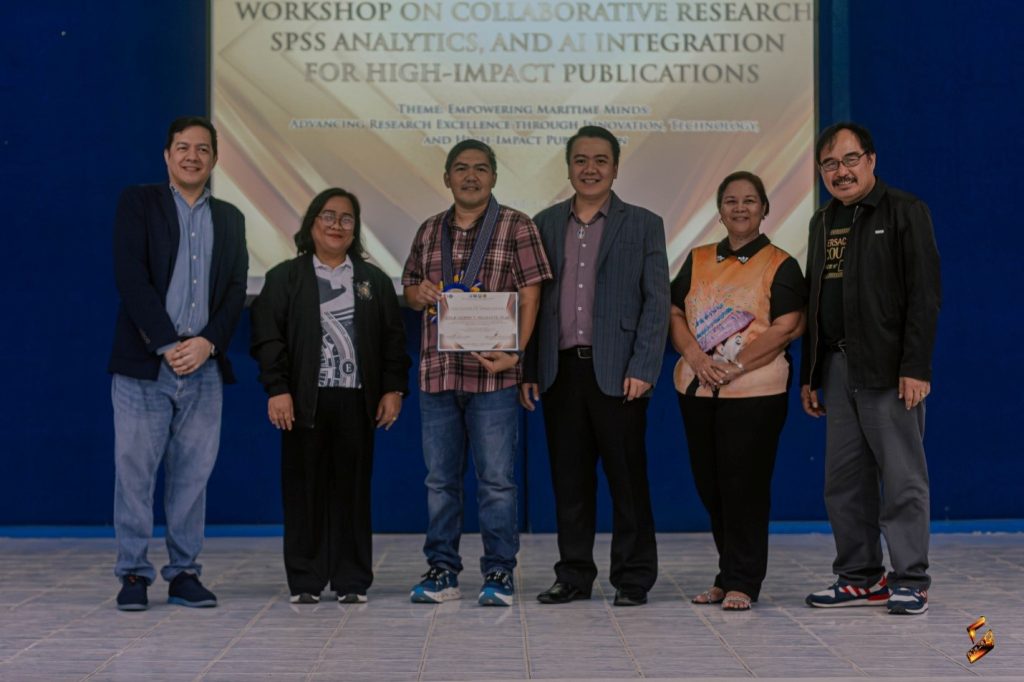
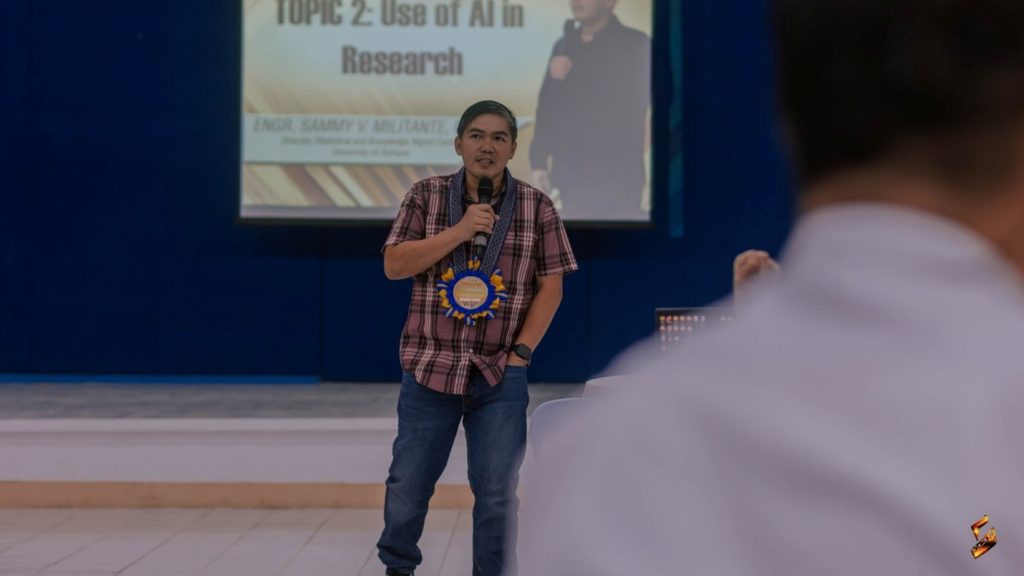
Session 3: Mastering SPSS Analytics
The final session focused on “Statistics Using SPSS” and was conducted by Dr. Eric M. Madera, Quality Assurance Officer of JBLFMU–Arevalo.
Dr. Madera provided hands-on guidance on using SPSS for quantitative research, including data input, statistical tests, and interpretation of outputs. His session reinforced the faculty’s capacity to conduct evidence-based, data-driven research aligned with global standards.
This practical training was particularly valuable in equipping participants with tools to strengthen their research validity, reliability, and publication readiness.
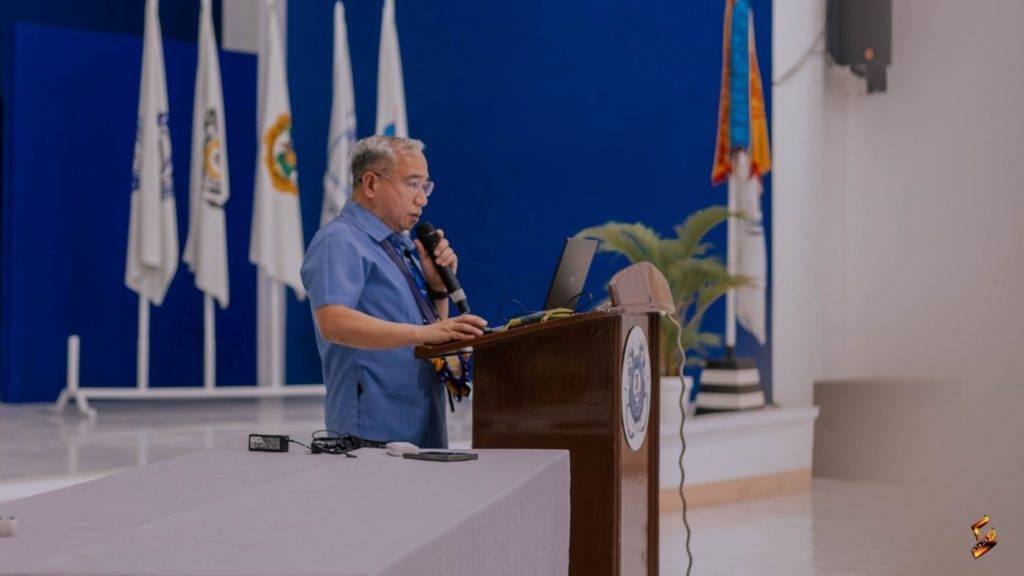
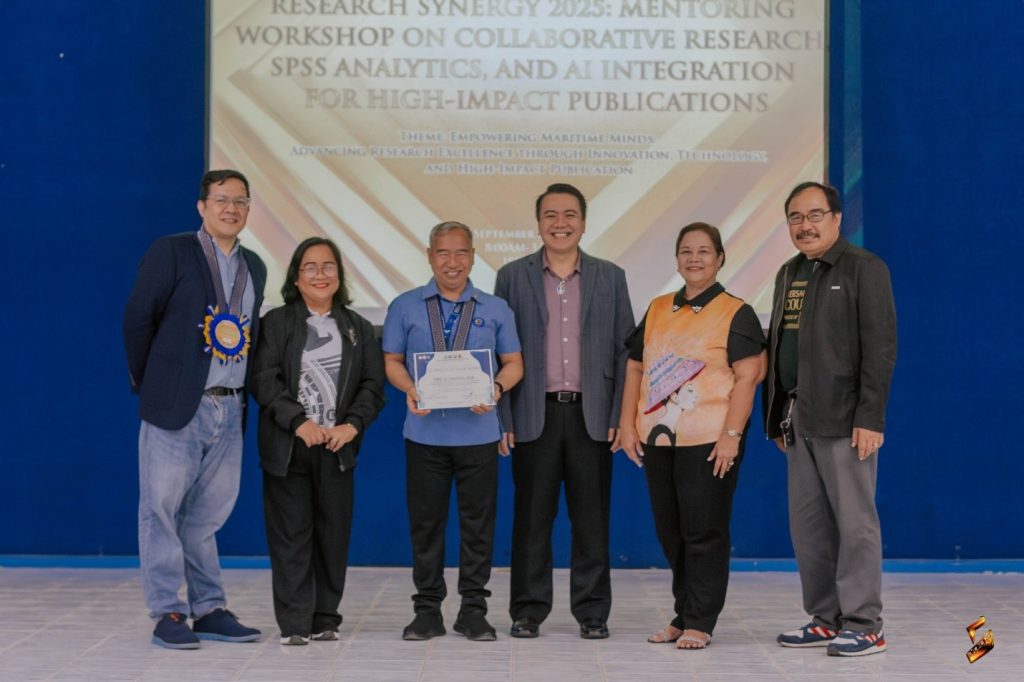
Closing Program: The Spirit of Synergy
The program concluded with Closing Remarks by Dr. Roderick R. Germo, OIC–Research Coordinator of JBLFMU–Arevalo and the man behind the vision of Research Synergy 2025. In his speech, Dr. Germo highlighted the importance of collaborative research, innovation, and faculty commitment in advancing JBLFMU’s mission to be a leader in maritime education and research.
Immediately after Dr. Germo’s inspiring message, the photo opportunity was held — a fitting symbol of unity and synergy among the faculty participants who collectively embraced the challenge of pursuing higher standards in research and publication.
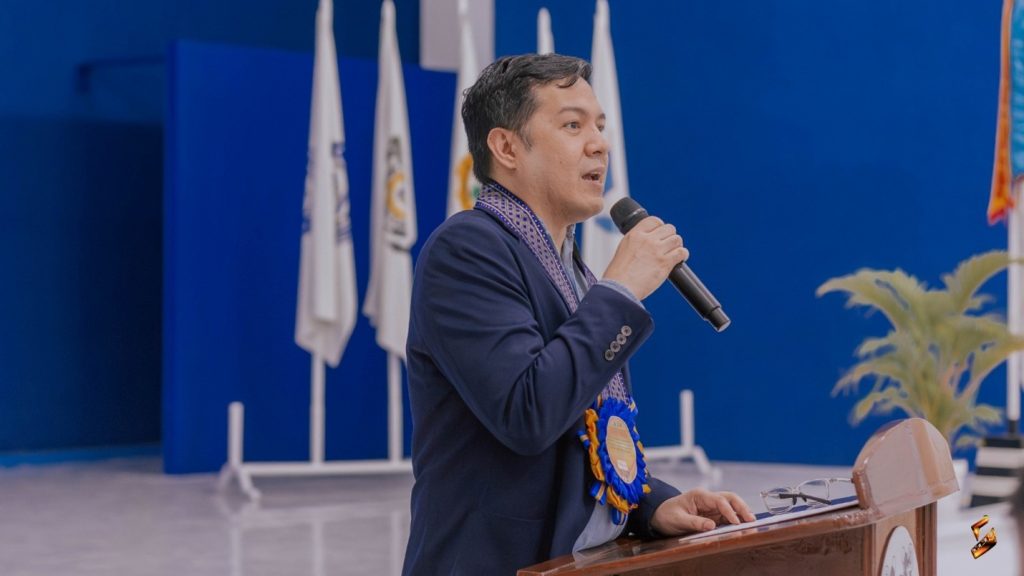
A Legacy of Faculty Synergy
Research Synergy 2025 was not merely a training workshop but a milestone of faculty empowerment and academic collaboration within the JBLFMU system. By focusing on high-impact publishing, artificial intelligence, and advanced statistical analysis, the workshop fortified the research culture of the university, preparing its faculty to engage in global academic conversations.
Through this initiative, JBLFMU reaffirms its dedication to nurturing faculty-driven research excellence—a legacy of innovation, collaboration, and global competitiveness under the leadership of Dr. Brian Gil S. Sarinas, OIC–Director of Research and Development and Community Extension Services, with JBLFMU–Arevalo as the proud host unit through the stewardship of Dr. Roderick R. Germo, together with fellow research coordinators Dr. Emeliza Estimo (JBLCF–Bacolod) and Dr. Rolando Alimen (JBLFMU–Molo).
Guiding the flow of this historic workshop with poise and professionalism were the two student masters of ceremonies, Midshipmen Carlos Manuel V. Mañas and Rein Gabrielle N. Naive, whose presence added youthful dynamism to a faculty-centered academic event.
